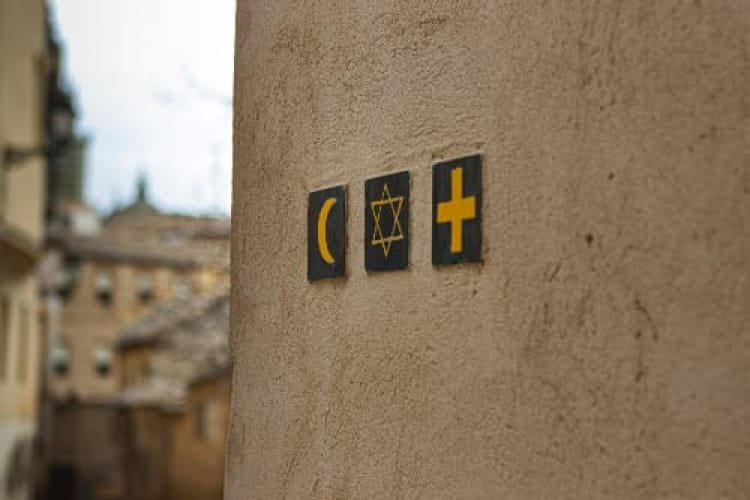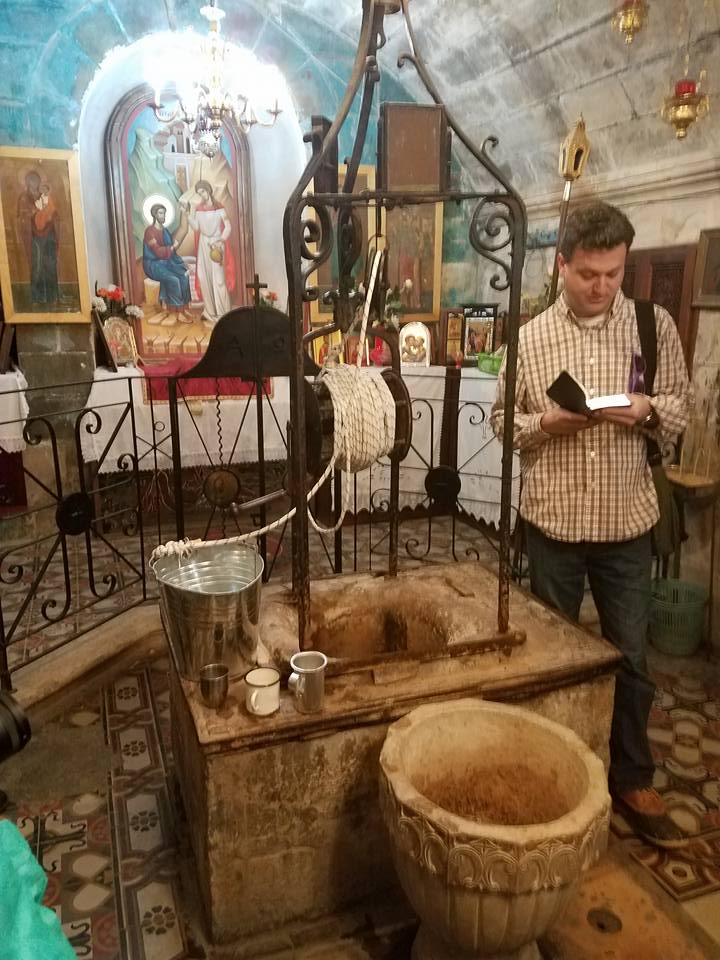About This Newsletter

Uncle Ishmael explores the intersection of the Bible and religious pluralism in order to support Christian engagement of religious difference. This weekly newsletter provides biblical commentary and theological musings appropriate to the Christian liturgical season with an emphasis on a Christian ethic of neighborly love. Uncle Ishmael hopes to create a more generous theology of religious difference so that Christians might be better equipped to love their neighbors of multiple faith traditions authentically.
God’s concern for all people compels us as Christians to respond to the growth of faith traditions in our communities and neighborhoods. Religious diversity is a reality we cannot passively observe. Our coworkers, neighbors, partners, and friends represent diverse religious identities, and our faith necessitates a constructive response to their faith. We can move beyond fear to curiosity and even celebration. These adherents are our neighbors and fellow human beings. We have been given the gift of living alongside wise and faithful people.
We are also compelled as Christians to respond faithfully to this diversity in conversation with the Bible, a source of conviction and encouragement. We dialogue with the Bible because it contains wisdom and deep learning. It raises the profound questions of faith; it delights and inspires with its stories of complicated moral characters. Its questions help us explore our questions. Its theologies aid us with our ponderings. The Bible gathers up a multifaceted, ancient conversation about the meaning of life and faith so that we, as readers, might enter into that discussion. The Bible shapes our beliefs and responses to present-day opportunities such as religious diversity. This ancient story can become ever new to prompt our faithful engagement of various religious people.
If these topics sound interesting, subscribe to the newsletter.

Jacob's Well, situated inside an Eastern Orthodox church and monastery in the city of Nablus in the West Bank. Jewish, Samaritan, Christian, and Muslim traditions all associate the well with Jacob. Photo: Lindsay Ross-Hunt.
Why subscribe?
All subscribers – free or paid – receive the weekly newsletter:
Arriving in your inboxes weekly, the newsletter offers biblical commentary, lectionary reflections, theological musings, and liturgical insights. This newsletter will always be free.
Additionally, paid subscribers – at $15 per month – help support this site.

Why the name "Uncle Ishmael"?
The name of the newsletter derives from the little-discussed biblical character, Ishmael, in Genesis. Readers often overlook him in favor of his younger brother, Isaac. Ishmael in the book of Genesis demonstrates our ability to read texts selectively and to construct theologies that leave out significant characters. In our typical Christian reading of Genesis, we focus so intently on God’s promise of a son to Abraham in the form of the child Isaac that we miss how the story of Ishmael is tied to that of Isaac. We ignore Ishmael because he has had little relevance in Christianity (and Judaism). Our accepted narratives do not identify with him, so he is erased from our telling of the story. But he is not ignored by the authors of Genesis, the storytellers of old.
But Ishmael is, of course, the literal uncle of Jacob/Israel. Uncle Ishmael.
How might our readings of the Bible be enriched by foregrounding ignored characters? How might our religious lives today likewise be enriched through engagement with those who are religiously different than us?
Who is Ishmael to our Isaac?
“Father Abraham had many sons. Many sons had Father Abraham.”
In my childhood, small-town church, the children delighted in singing and acting out the motions to the camp song “Father Abraham Had Many Sons.” Of course, the song’s language is overly masculine. We need to add daughters to the opening line—or, better, call them children—if we are to include ourselves as a part of the family. And we need to acknowledge the crucial labor of Sarah, Hagar, and Keturah in the begetting of these children. Mothers are indispensable to this big family. Nevertheless, perhaps we can return to this children’s song and imbibe its potentially inclusive theology. The song does not claim a single child for the parent. Many sons, many children. Not an only child of promise. Both then and now. Abraham indeed had many sons, as we will see soon enough. And Abraham has many children in our world today: Christians, our Jewish neighbors and Muslim friends, our Hindu coworker and nonreligious acquaintance, and many others. I am one and so are you!